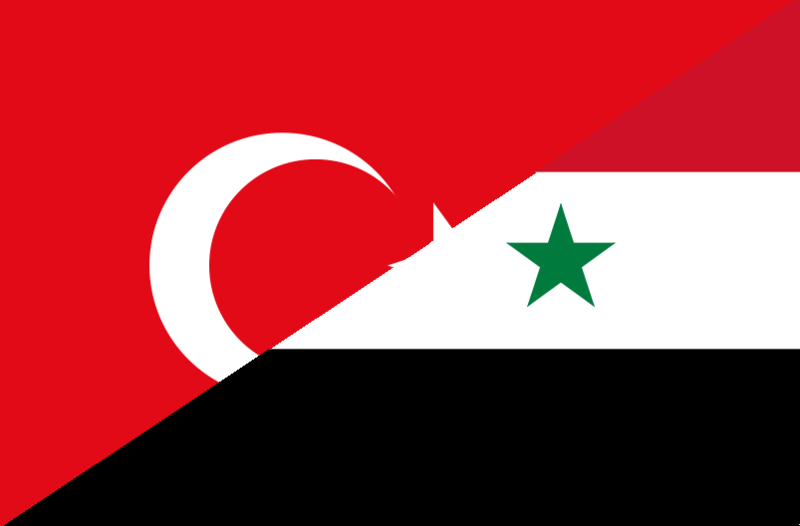
By: Yasin Aktay*
Turkey’s new steps in its foreign policy, particularly those including Israel and Russia, provided important opportunities to see the scale and nature of Turkey’s weight in world politics. Turkey’s power in foreign policy are also, to an extent, very closely related to the economic power it has accumulated in the recent years. The ties and trade volume developed with Russia in these last years has probably made both countries more dependent on each other compared to the past. That is why cutting the ties has harmed both countries. It is a situation resulting from the strange paradox between dependency and power in foreign policy. Your dependency can increase as your power increases. There is no country whose power increases and does not need to do trade with anybody.
The same is in question for Israel. It has no choice but to remain standing with all the help şt receives from the EU or U.S. or switch to a different kind of relationship level with the countries around it to maintain its power. The gas it found in the Mediterranean can make it richer, but it needs a secure passageway to turn this gas into a tangible asset. Both Turkey and other countries are going to be on that route. Thus, Israel finds its new power opportunities in peace with peace with more regions than always.
It is eventually required to see that it needs a different approach that observes the rights of the Palestinian people in the region to provide or maintain its own security in the long term. As long as it continues is position as invader by opening areas of settlement and without withdrawing back to its 1967 borders, it will be constantly threatening its security by its own hands.
This is a different issue, but since we mentioned it we can touch on it. Due to Turkey’s agreement with Israel, it is thought that the friendship will be an impeccable one and Ankara is almost held subject to criticism for entering such a relationship. Frankly, because we know all aspects of the agreement, this criticism seemed strange enough to take seriously, yet seeing that this is seriously stated by smart and sound people requires a couple considerations.
First, Turkey did not make an alliance with Israel against Palestine or the people of Gaza with this agreement. Everything that was done was done in complete consultation with and with the consent of all Palestinian and Gazan authorities. Hamas leader Khaled Mashal and Palestinian Authority Prime Minister Ismail Haniyeh were aware of every stage of the talks that led to this agreement and when it was concluded they openly expressed their gratitude.
Secondly, this agreement is only a step taken to resume the two ties of the two states. These steps do not mean Turkey will approve, support or even hold free of criticism every Israeli policy. For example, even at the time, this agreement was made, just as Turkey did not give up its demand to have the unconditional and complete lifting of the blockade, it is still persistent on Israel withdrawing to its 1967 borders, abiding by the U.N.’s decisions and Jerusalem being Palestine’s capital. Turkey is going to continue to support the Palestinian state and Gaza in every platform with this agreement or despite this agreement and continue to criticize Israel in all its mistakes.
I actually do not think it needs to be stated so openly, however, something I heard somewhere surprised me very much. In an assembly we attended during eid visits, someone, whose Islamic concerns and sincerity I never doubt said he was upset because “Turkey reached an agreement with Israel and decided to fight Iran.” Seeing that this opinion is more common than I thought made me think. How could such a perception be formed?
When Turkey mends its ties with Israel, does this mean it made a choice between Iran and Israel?
Why should that be so?
It is no secret that Turkey is displeased with Iran’s sectarian policies in Syria, Yemen, Iraq and Lebanon, the instability and disturbance caused by these policies and that it is highly disappointed with Iran because of these. However, Israel is not establishing a relationship as part of a search for new alliances to open a new front.
For years, Turkey explained that improving ties with one does not require ruining them with another and implemented this to a large extent. Associating the idea of an alliance with Israel against Iran or another Muslim country with Turkey is great injustice. Despite its great disputes with Iran, Turkey never disregarded the obligation to cooperate with Iran at the existing relationship level to explain its mistakes to Iran and to build a better, securer and more stable Islamic world and never thought about destroying the possible opportunity for cooperation.
Turkey’s new foreign policy steps are not a turn from principled politics to pragmatic politics. Even in pragmatism people can make choices that are parallel with their principles. But what is important is to avoid doing anything against its principles. Mutual interests can sometimes make room for a more principled and humanitarian politics than we think. Utilizing these spaces well will help principles gain dominance.
Turkey is not giving up its principles when observing its interests. It is showing that this too is possible. Of course, this is a different type of politics. To understand it, we need to continue to watch a little more closely.
*Yasin Aktay is a Justice and Development Party member of the parliament and head of the Turkish Group of Inter-Parliamentarian Union.
(Published in Turkish Yeni Şafak newspaper on July 11, 2016 )



